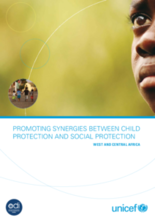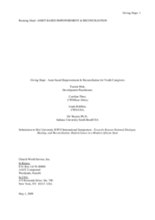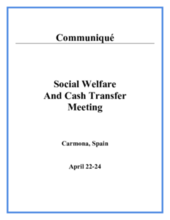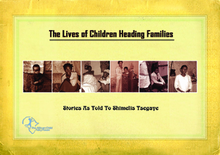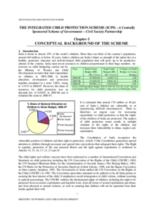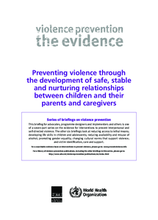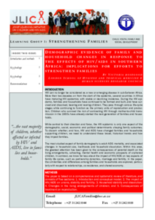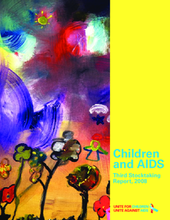Displaying 811 - 820 of 911
Focuses on children’s vulnerabilities and risks related to an absence of protection from violence, abuse and neglect, and the ways in which measures to address such vulnerabilities and risks can be more effectively integrated into social protection policy frameworks in the West and Central Africa region.
This paper shares the philosophy and key components of the African development initiative Giving Hope that works with youth caregivers through an asset-based empowerment methodology. The approach facilitates the restoration of youth caregivers’ sense of self, belonging, power, and collective responsibility.
Experts gathered in Carmona Spain to examine the results of policy relevant systemic reviews on social welfare and cash transfers. Meeting delegates explored the findings of reviews on integration of social welfare services and cash transfers in Ghana, Chile, Zimbabwe, Malawi and Kenya.
This report brings together an eight-part series of briefings on the evidence for interventions to prevent interpersonal and self-directed violence. By spotlighting evidence for the effectiveness of interventions, the series provides clear directions for how violence prevention funders, policy makers and programme implementers can boost the impact of their violence prevention efforts.
Developed while researching child-headed households in five Ethiopian towns and their rural surroundings, this book presents the experiences and stories of individual child household heads.
In 2006 the Indian Ministry of Women and Child Development proposed the adoption of an Integrated Child Protection Scheme (ICPS), which was adopted and launched by the central government in 2009-2010. Recognizing chronic under funding of child protection services in the country and major gaps in the system, the ICPS was expected to significantly contribute to the realization of Government/State responsibility by creating a system that would effectively and efficiently protect children.
This briefing looks at the effectiveness of interventions that encourage safe, stable and nurturing relationships for preventing child maltreatment and aggressive behaviour in childhood. The focus is on primary prevention programmes, those that are implemented early enough to avoid the development of violent behaviour such as child maltreatment and childhood aggression.
This publication documents real life stories of selected African parents, shedding light on the multifaceted challenges parents are faced with and the kind of support they need to bring about behavioral change and enhanced capacity.
Assessment on the impact of HIV/AIDS on key aspects of family life cycles
Examines data on progress, emerging evidence, and current knowledge and practice for children as they relate to four programme areas

